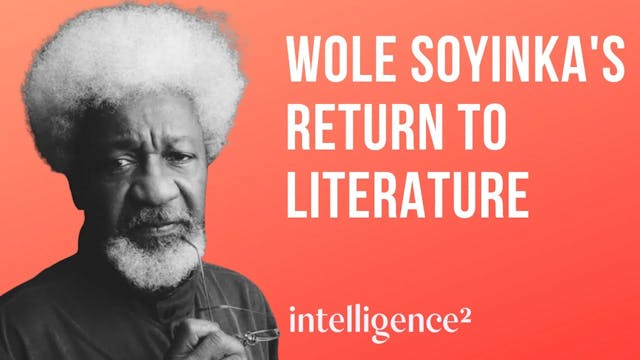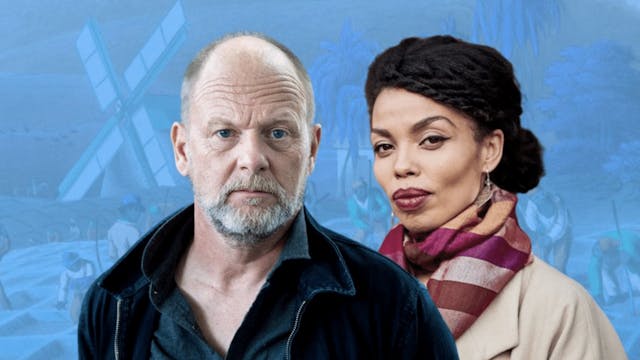Great Minds: Slavoj Žižek
Art & Culture
•
1h 30m
Modern radical thinker Slavoj Žižek spoke on the 1st July as part of the 'Great Minds' series, and affirmed his status as a great mind of modern philosophy and social, cultural and political theory. Starbucks, social solidarity and self-commodification were among the varied and enlightening topics touched upon by Žižek, all grounded by his interpretation of ideology and its continuing importance.
One of Europe's foremost Marxist theorists, Žižek criticised modern leftist groups who, he argued, didn't really know how to cope with the upheaval of the 'sublime' moment (revelation that an assumed state of total happiness is actually nonexistent). The question of 'what happens next' has been asked since the dwindling exhaustion of modernism into postmodernism. Žižek asks us to put ideological pressure on modern life, confirming the presence of ideological symbolism even in blatant popular culture (such as two Oscar-winning films, The King's Speech and Black Swan [2010]).
His manner was sometimes serious, sometimes comic and vaguely apocalyptic (he is a self confessed pessimist), which all together made for an engaging talk, dense in historical, anecdotal and political references. The combination of issues allowed the modern audience member to examine their own behaviour alongside Hegelian optimism, Freudian self-commodification and Marxist ideas of social roles, in a non 'academic' sense, referring to the purchasing of Starbucks coffee as a subconscious purchasing of social solidarity built into the price. An audience member asks 'isn't it the case that people know that what they're doing is buying a coffee that will then, in some sort of self-serving way, make them feel better about themselves?', thus showing that ideology is no longer a 'smokescreen' of sorts. Žižek answers by claiming that we follow things, knowing that they are ideologies, and this does not necessarily make them 'right' or true. This is where the notion of ideology seems to be headed; to a total self consciousness -- as with a Hegelian resolution of the 'Zeitgeist' (Žižek is actually close to the publishing of an 800 page book on Hegel).
In his relatively brief talk, Slavoj Žižek managed to expose our susceptibility to certain ideologies, thus proving their ever present role in modern society - not bad for a Friday night in West London, perhaps the capital of the British bourgeoisie.
Up Next in Art & Culture
-
Wole Soyinkas Return to Literature
Wole Soyinka, Africa’s first Nobel laureate for literature, has released his first novel in 50 years.
Chronicles From the Land of the Happiest People on Earth is many things: a satire, a whodunit mystery and an expansive assessment of the last 60 years of Nigerian history, providing a window int...
-
Emma Dabiri and Alex Renton on Race, ...
Emma Dabiri, Alex Renton and Farah Jassat come together in this unmissable conversation to discuss race, reckoning and what everyone can do to build coalitions and create tangible change.
-
Idris Elba and Kwame Kwei-Armah on th...
In the wake of of the Black Lives Matter protests, during this watershed moment Idris Elba and Kwame Kwei-Armah come together to explore the future of the arts in this discussion chaired by Yassmin Abdel-Magied.
Brilliant minds, debate, online events, ask your questions. Try Intelligence Square...



